#harvard crimson
Text

Coleman Nogle
2K notes
·
View notes
Text
by Matt Lebovic
“[Harvard] contributed to Nazi Germany’s efforts to improve its image in the West,” wrote historian Stephen Norwood in his book, “The Third Reich in the Ivory Tower: Complicity and Conflict on American Campuses.”
“Harvard’s administration and many of its student leaders offered important encouragement to the Hitler regime, as it intensified its persecution of Jews and expanded its military strength,” Norwood wrote.
Conant “was not just silent” about antisemitism, said Norwood, but “actively collaborated in it.”
In May 1934, Conant was publicly mute during the visit of the Nazi warship Karlsruhe to Boston, some of whose crew members were entertained at Harvard.
The next year, Conant permitted Nazi Germany’s top diplomat in Boston to place a wreath bearing the swastika in a Harvard chapel, according to Norwood.
Throughout the 1930s, Harvard tried to keep out Jewish refugees — and especially Jewish professors — as demonstrated in research on European scholars who attempted to flee Hitler.
Conant did not speak out against Nazism until after the Kristallnacht pogrom in November 1938. Three years had passed since the Nuremberg race laws stripped German Jews of citizenship.
67 notes
·
View notes
Text
by Dion J. Pierre
Dozens of anti-Israel student groups at Harvard University, along with several allied campus groups across the US, have issued a set of demands to Harvard President Claudine Gay and given her until Monday to respond, adding further fuel to what’s become an explosive situation at one of the world’s most elite universities over the Israel-Hamas war.
Earlier this week, students protested on campus and issued the list of demands, which included the reinstatement of a student proctor who three weeks ago participated in mobbing a Jewish student and screaming “Shame!” into his ears.
According to The Harvard Crimson, the campus newspaper, the university had suspended indefinitely Elom Tettey-Tamaklo, a second year student at the Harvard Divinity School, from his role as a proctor over his involvement in the incident, video of which went viral earlier this month. Tettey-Tamaklo reportedly has been ordered to vacate free housing he received as compensation for holding the position, which gives graduates the opportunity to mentor freshmen.
This week, the students also demanded that Gay commit to pursue no disciplinary or punitive actions against “pro-Palestinian students and workers engaging in non-violent protest.” The letter came as, according to The Harvard Crimson, eight undergraduates students had been summoned to hearings as part of disciplinary proceedings against students who last week occupied University Hall on campus for 24-hours.
The third demand in the letter to Gay was for Harvard to “disclose [its] investments in the internationally recognized illegal settlements in Palestine and divest from those holdings” — an apparent nod to the boycott, divestment, and sanctions (BDS) movement against Israel. The BDS campaign seeks to isolate Israel from the international community as a step toward the Jewish state’s eventual elimination.
“Harvard University continues to attempt to silence the voices of those who refuse to watch idly by as crimes against humanity are committed against the Palestinian people,” said the letter containing the demands. “The university continually wants to ‘affirm their commitment to protecting all members of our community from harassment and marginalization.’ However, they are currently attempting to fire a Black first year proctor, Elom, for standing on the side of justice.”
The letter additionally chastised Gay for earlier this month condemning the popular anti-Israel chant “from the river to the sea, Palestine will be free” — a slogan that has been widely interpreted as a call for the destruction of Israel, which is located between the Jordan River and the Mediterranean Sea.
Now we will find out who is in charge at Harvard, the administration or the spoiled, little, terror-supporting, Jew-hating motherf***ers,
37 notes
·
View notes
Text
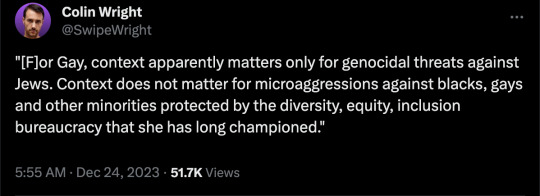
By: Alan Dershowitz
Published: Dec 21, 2023
The Harvard Crimson has refused to publish a letter I wrote critical of president Claudine Gay’s testimony in Congress.
The paper published an article Dec. 12 by law Professor Charles Fried providing a legalistic defense of her claim that those who call for genocide against Jews cannot be disciplined without considering “the context.”
Here’s my response:
--
The problem with Charles Fried’s defense of President Gay’s “Context matters” statement is he fails to acknowledge that for Gay, context apparently matters only for genocidal threats against Jews.
Context does not matter for microaggressions against blacks, gays and other minorities protected by the diversity, equity, inclusion bureaucracy that she has long championed.
Under the DEI regime, admissions have been withdrawn, lectures canceled and students admonished — at Harvard, Penn, MIT and other universities — for their speech without regard to the context in which they were said.
Fried fails to see the broader context of the double standard employed by so many universities — including Harvard — against Jews and other minorities that are excluded by DEI.
Yes, context matters, and in this broader context, Gay was wrong to brag to Congress about Harvard’s commitment to free expression without also telling it that Harvard’s selective application of free-speech standards earned it a last-place rating for free speech by the Foundation for Individual Rights and Expression.
It is in that context that Gay’s new and selective double standard for protecting the free speech of Jew-haters should be evaluated.
It is to be hoped that Gay’s new contextual standard will in the future be universally applied to all speech at Harvard and the DEI bureaucracy will henceforth be denied the power to censor and cancel expression that is directed against protected minorities.
--
Despite my forward-looking and positive conclusion, the editorial board wrote that it is “not interested in publishing it.”
I think this is the first time in my 65 years of writing letters to the editor that one has been turned down.
And this one is from a professor who has been on the Harvard faculty for 60 years and has published numerous articles and letters in the Crimson.
It’s a telling irony the paper that reassured its readers “Free speech is the guiding principle of this Editorial Board” refuses to publish a letter calling for less censorship and viewpoint discrimination on campus.
That reflects Harvard’s double-standard approach to free speech: contextual free speech for the enemies of Jews and their state; censorship for supporters of Israel and critics of Harvard.
By refusing to publish my short reply to Professor Fried, the paper didn’t deny my free speech.
It denied Crimson readers’ right to hear all sides of a controversial issue — because the Crimson decided to shut down the marketplace of ideas.
When the media refuse to publish legitimate criticism of the institution they cover, the checks on the biases of that institution are weakened.
In light of this pervasive double standard, it’s not surprising so many Jewish students feel that Harvard does not value and protect them.
In recent years, the Crimson has become the megaphone for anti-Israel and antisemitic extremism on campus.
It’s also become the censor of pro-Israel and balanced views.
Last year, for instance, the Crimson’s editorial board called for support for the boycott, divestment, sanctions movement against Israel.
In its editorial, the paper explicitly distanced itself from a 2002 editorial that called divestment too blunt of a tool and the comparison to South African apartheid offensive: “In the past, our board was skeptical of the movement (if not, generally speaking, of its goals), arguing that BDS as a whole did not ‘get at the nuances and particularities of the Israel-Palestine conflict.’ We regret and reject that view. It is our categorical imperative to side with and empower the vulnerable and oppressed.”
It then goes on to paint a false picture that pro-Palestinian viewpoints are being suppressed on campus.
The Crimson of today writes, “We have a certain community-wide tendency to dismiss opposing views as inherently offensive and unworthy, straw-manning legitimate arguments and obfuscating difficult but necessary discussions. Yet civil discourse and debate, even when trying, are fundamental steps towards a better reality.”
But it does not apply these standards when it comes to Jews.
Harvard students, faculty and other readers should make their voices heard in the name of veritas and the open marketplace of ideas.
Competing Harvard newspapers and media should be established to ensure all reasonable views can be heard.
The Crimson is part of the problem of growing antisemitism at Harvard. It does not serve the Harvard community well in this time of deep divisions and hate.
Alan Dershowitz is professor emeritus at Harvard Law School. His latest book is “The War Against the Jews: How To End Hamas Barbarism.”
==
The antisemitism is bad enough, but then their defence for that is a value they clearly don't subscribe to or support.
#Alan Dershowitz#Harvard#Harvard University#Harvard Crimson#hypocrisy#free speech#freedom of speech#antisemitism#corruption of education#academic corruption#academic freedom#diversity equity and inclusion#DEI#diversity#equity#inclusion#DEI bureaucracy#cult of DEI#religion is a mental illness
5 notes
·
View notes
Text
It started when Bob Jones University had its federal funding withheld due to a different policy monitoring its students’ romantic lives — a policy that university President Bob Jones III had apparently ended just hours before being asked to defend it on Larry King Live in 2000.
“We stand against the one-world government, against the coming world of anti-Christ, which is a one-world system of blending of all differences,” said Jones, defending his university’s right to ban interracial dating. “The Bible is very clear about this.”
“There is a religious freedom issue,” he added. “That’s all we ever fought for.”
This supposed Biblical clarity was the grounding for the policy in 1970 as well, when the IRS stripped BJU of its tax-exempt status over the ban. In response, outrage from the religious right coalesced into political groups such as the Moral Majority, whose platforms have come to define the American religious right.
2 notes
·
View notes
Text
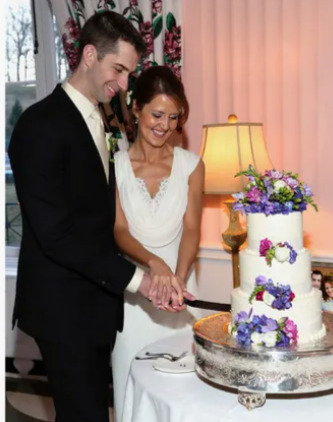
Source
Rumor has it that the Harvard Crimson will be deep-sixing a piece from now-Senator Tom Cotton's days as a contributing writer.
The far-Right Arkansas Republican wondered What do women want? <yawn>
The answer? Something called "covenant marriage".
Yikes!
We almost feel sorry for his donors.
1 note
·
View note
Text

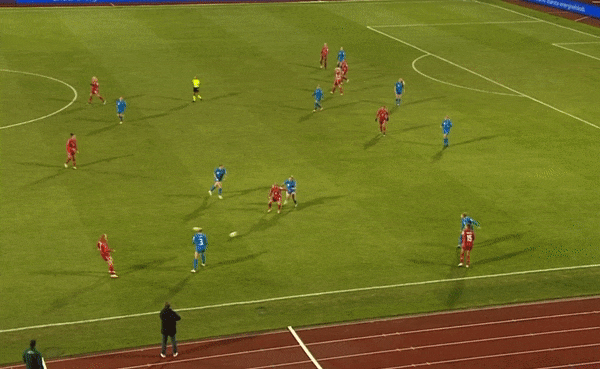
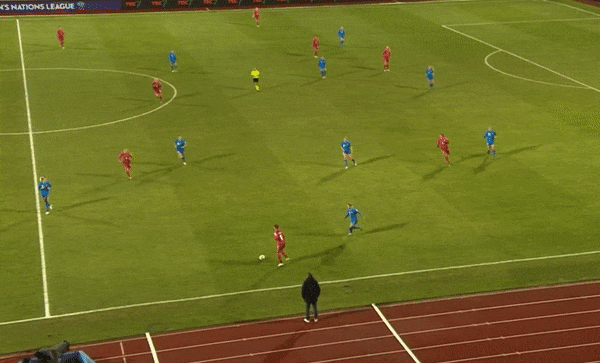

Josefine Hasbo against Island
0 notes
Text
#harvard crimson#antisemitism#anti israel#antisemitism on campus#anti israel bias#bad journalism#jumblr
0 notes
Text
2022-23 ECAC Preview
Usual Suspects Once Again Favored
According to the preseason Coaches Poll, the defending regular season ECAC champs Quinnipiac Bobcats are still the team to beat after garnering eight first-place votes. Meanwhile, the media favor last year’s postseason champion Harvard Crimson to win it all. Whoever you believe, the ECAC will still come down to the usual suspects, Quinnipiac, Harvard, Clarkson…
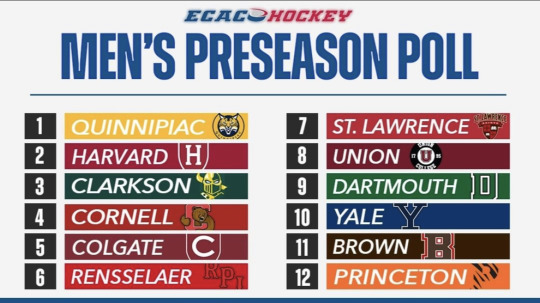
View On WordPress
#Clarkson Golden Knights#Colgate Red Raiders#Cornell Big Red#ECAC#Harvard Crimson#NCAA Men&039;s Ice Hockey#Quinnipiac Bobcats#RPI Engineers
0 notes
Text

Coleman Nogle
1K notes
·
View notes
Text
Harvard Track
#Harvard University#Harvard Crimson#track & field#track girls#college track & field#athlete#female athletes#college athlete#college girl#black athletes#tiktok#video
93 notes
·
View notes
Text
by Kevin Downey Jr.
The anti-Semitic students who "appropriated" Harvard Yard with tents, signs, and—if Harvard is anything like Columbia —spendy, organic snacks for the wealthy, gluten-dodging street urchins calling for the death of Israel reportedly got a wake-up call they didn't expect: a master-blasting by automatic sprinklers.
Harvard Crimson:
Sprinkler Struggles Continue — 4:05 a.m.
As protesters spend their first night in the Harvard Yard encampment, the biggest threat to their stay has not come from administrators or Harvard University police officers, but the Yard’s sprinklers.
Two more sprinklers turned on at the edge of the encampment near Massachusetts Hall. The sprinklers began to hit tents on the edge of the camp before protesters rushed over to covered the sprinklers with buckets and sit on them.
Sprinkler Turns on Inside Encampment — 3:50 a.m.
A sprinkler has turned on within the encampment, in the middle of the tents. A protester covered it immediately with a bucket, and is now seated on the bucket as a puddle forms around it. There is little movement among campers.
“Yellow team needs to come now,” a protester said on a phone call when the sprinkler turned on.
Sprinklers Disturb Sleeping Campers — 2:20 a.m.
As temperatures dipped to 36 degrees, sprinklers near University Hall have begun to turn on — though none on the grass within the encampment.
There is movement throughout the camp as protesters seem to start preparing for more, distributing buckets around various points of the perimeter.
Oddly enough, there doesn't appear to be any video evidence corroborating the soaking, just the burbs above from the Crimson, Harvard's student newspaper.
WEEP-O-RAMA! Harvard's precious lambs will probably call this an attack by "automatic assault sprinklers" trying to "genocide" them.
The hilarious (alleged) dousing took place on Wednesday.
11 notes
·
View notes
Link
On April 29, the Crimson Editorial Board, of which I am an associate editor, published a Staff Editorial that embraced these claims, which were plastered onto the Palestinian Student Committee’s “Wall of Resistance” at the time. The Board “proudly” endorsed the associated Boycott, Divestment, and Sanctions movement, while rendering the display a “colorful” and “spirited” emblem of “passion.” The article made no mention of the fact that BDS student activism has been tied to antisemitic exclusion and violence on college campuses.
Having missed the meeting where the Board shifted its stance on BDS, I’ve spent an embarrassing number of hours puzzling over the decision, attempting to make sense of the Board’s reasoning. Yet the more I read the Staff Editorial, the more muddled its logic seemed to become. The Board, seemingly seduced by the “colorful” Wall of Resistance, directs virtually no attention to any concrete or balanced exploration of the conflict, instead evading it by stating that we “can’t nuance away” Palestinians’ lived realities. And eventually, after having evaded all precision and nuance, it blindly accepts BDS’s flawed, factually misleading mission.
And now, BDS co-founder Omar Barghouti has authored a Crimson letter to the editor that repeats a host of deceptive anti-Zionist talking points, recycling references to what others have dubbed “Jewish supremacy” while highlighting reports that characterize the Israeli-Palestinian relationship as a racial dispute. These declarations aren’t just wildly distorted; they’re dangerous. They paint a reductive portrait of the Jewish state, demonizing the nation and delegitimizing its very existence. But they are also provocative, evoking emotion, and are cloaked with a blanket of resonant humanitarian claims. For unknowing onlookers with a taste for justice, that seems to be all that matters.
This slick dynamic, I’ve come to realize, captures the essence — and the dangerous “artistry” — of the broader BDS movement.
It is my intuition that Zionism is not what the Editorial Board — or most people backing an anti-Zionist agenda in the name of justice — believes they are rejecting, or likening to racism and cruelty. Instead, they are rejecting a false projection of Zionism — one that has been carefully constructed by movements like BDS, whose entire narrative is founded upon a hefty hijacking of Jewish identity and history.
BDS’s official website explicitly writes that Israel’s origins can be found within a “racist ideology” of European colonialism, which it then ties to the Zionist movement. But the Israeli-Palestinian conflict is not rooted in a racial struggle, nor in an ideology of superiority or hate. On the contrary, Zionism was born in 1896 as a movement of liberation, of freedom, and of resisting unfair power imbalances during a period in which Jews across Europe were persecuted — barred from government assemblies, attacked in the press, and excluded from business dealings, hotels, social circles, and clubs.
Early Zionist settlers in Palestine didn’t steal or conquer the land as they came in throughout the late 19th and early 20th century, as is the case with most European settler colonialism narratives; they bought the land. And in fact, early leaders of the Zionist movement, like Theodor Herzl, explicitly rejected the idea of displacing non-Jewish populations.
Nonetheless, as the Jewish population in the region grew in the years prior to 1947, Jewish people increasingly suffered violent attacks, killings, rapes, and mass lootings from neighboring non-Jewish groups.
After erasing this early history and redefining Zionism entirely, the BDS website then goes on to reduce Israel’s “violent establishment in 1948” to an act of “ethnic cleansing” against those “indigenous” to the region, designed to “uproot as many Palestinians as it can.” These words, too, reflect a complete erasure, perversion, and demonization. First of all, Jews were already indigenous to the region, as archaeological and biblical evidence has underscored.
Next, Israel’s declaration of independence came only after a 1947 United Nations two-state solution was met with fierce opposition from Arab leaders — and with the burning of Jewish homes, synagogues, and murders. Most guttingly, this narrative not only ignores but subverts the post-Holocaust environment by charging Jewish people, fresh out of the Holocaust, with a “premeditated” ethnic cleansing plot. It is my suspicion that this final move reflects an effort to counter and negate the one piece of Jewish history that cannot so readily be muted or transformed.
The particular form of anti-Zionist rhetoric fueled by the BDS movement isn’t just misleading — it’s also brazenly antisemitic, with its origins traceable to a KGB propaganda campaign that thrived under the leadership of KGB chairman Yuri Andropov. The campaign’s aim was to undermine the Israeli state amid its growth in the Cold War period, and igniting antisemitism was seen as a strategic means to that end. The operation’s leaders treated Hitler’s Mein Kampf as something of a bible, using it as a source of information about Zionism. In publications, the campaign circulated direct replicas of Nazi Germany caricatures that now attacked “Zionists” instead of “Jews.” The USSR also added new vilifying analogies into the mix — equating Zionism to Nazism itself, and construing Zionism as an inherently racist ideology. Today, the BDS movement has thrived upon these very tacts: At the BDS movement’s fringes, comparisons between Jews and Nazis are weaponized. And at the BDS movement’s heart, the denigrating conflation of Zionism and racism continues to pulsate loudly.
Today, the BDS movement’s leaders, like Barghouti, may outwardly oppose antisemitism. But misinformation was part and parcel of what made anti-Jewish hatred, and eventually genocide, a thinkable project in Nazi Germany. It’s what turned Soviet Jews into targets of persecution and hatred years later. Now, the BDS movement is being driven by strikingly similar notes of factual manipulation. One can only expect that the inherited offshoots of this rhetoric would continue to spur antisemitic violence today.
This is exactly what has taken shape amidst BDS’s expanding reach, which stretches outward onto today’s college campuses: One report explicitly attributed the increase in antisemitic incidents on campuses to the rise of the BDS movement. Anti-Zionist and pro-BDS student groups also produce outright exclusion, as legions of college students across the country are pledging not to affiliate with pro-Israel student organizations and are isolating individual Zionist students. Sometimes, these attacks more overtly transpose themselves onto Judaism itself. Only a few years ago at Stony Brook University, a student member of the school’s pro-BDS, anti-Zionist Students for Justice in Palestine chapter was quoted in the school paper as stating, “we want Zionism off this campus, so we also want Hillel off this campus.”
Jewish people are also systematically shut down by the BDS movement’s followers when they try to speak up: According to the Anti-Defamation League, a central goal of SJP, a leading source of BDS activism on college campuses, is to protest pro-Israel campus events by heckling speakers to the point of quietitude. As dialogue is stifled by anti-Zionist and pro-BDS students, vilifying slurs and monikers, new and old, also tend to make their way into the air — from referencing the trope of a “smelly Jew,” to chanting “Zionists are terrorists,” to spewing the words “f—cking Zionist.”
BDS’s strategy of ideological warfare is all the more frightening because of how well it works — after all, it has led some of the most decent, kind, and thoughtful people that I know at Harvard to become patrons and propagators of antisemitism.
The Board admits, still in line with past precedent, that BDS is a “blunt tool.” I believe that this tool is finer than we realize. It has been sharpened by societal forces, and historical precedents, in order to wage what is, at its core, not a fundamentally economic war of boycotts and sanctions — but a more sinister and violent ideological one. People like me — a “f-cking Zionist,” a “smelly Jew,” a modern-day “Elder of Zion” — are not simply “collateral damage” in this war. We are targets — directly wounded by signals and signs of rhetorical weaponry, and dismissed when we respond to what we know has historically been the writing on the wall.
Writing this has not been easy — not just because of the complicated history, to which I have personal ties. It has also been difficult because BDS is the embodiment of everything that I have known the Board to stand against — and, in light of the Board’s failure to recognize that, I can’t help but feel a strange mix of sadness, disappointment, and fear. Back in February 2020, we opined as a Board that casting either group as “the evil one” in the Israeli-Palestinian conflict is a counterproductive approach, and we made an explicit call for nuance. Now, the Board has tacitly endorsed Israel’s demonization while maintaining that “we can’t nuance away” Palestinians’ lived realities. In my view, this is yet another testament to BDS’s chilling “artistry”; it is an embodiment of the fact that BDS’s messaging invokes an emotional reaction that bypasses thought at a visceral level. When nuance is present, it becomes harder to demonize one party — so BDS does all that it can to reject that complexity and thought.
This negation of nuance doesn’t just enable the mobilization of age-old antisemitic machinery. It also fuels discord and division, when what the mitigation and eventual resolution of this conflict most desperately need is unity, objectivity, and even-handed advocates calling for peace. Still, I have to believe that we all fundamentally want to pursue progress, productive dialogue, and peace — it’s just that some of us were seduced, by misinformation and “passion,” into thinking that BDS could get us there.
I don’t know what you see. Maybe it’s color; maybe it’s spirit. I see a violent history that has been reproduced in a camouflaged modern-day form.
Gemma J. Schneider ’23, a Crimson Associate Editorial editor, is a Government concentrator in Pforzheimer House.
103 notes
·
View notes
Photo

go crimson! 😉
141 notes
·
View notes
Text
#jewish#antisemitism#jewblr#leftist antisemitism#tw antisemitism#poll#tumblr poll#tumblr polls#polls#antisemitism tw#tw nazi#harvard#the harvard crimson#i/p
7 notes
·
View notes
Video
n17_w1150 by Biodiversity Heritage Library
Via Flickr:
The botanic garden ;. London :Simpkin & Marshall,1825-. biodiversitylibrary.org/page/52550527
#Botany#Floriculture#Flowers#Great Britain#Pictorial works#Harvard University Botany Libraries#bhl:page=52550527#dc:identifier=https://biodiversitylibrary.org/page/52550527#potentilla atrosanguinea#wisteria frutescens#gentiana cruciata#geranium lancastriense#star gentian#cross gentian#Ruby Cinquefoil#dark crimson cinquefoil#Himalayan cinquefoil#cinquefoil#American wisteria#wisteria#Geranium sanguineum#Bloody Crane's-bill#bloody geranium#geranium#crane's bill#botanical illustration#scientific illustration
2 notes
·
View notes
